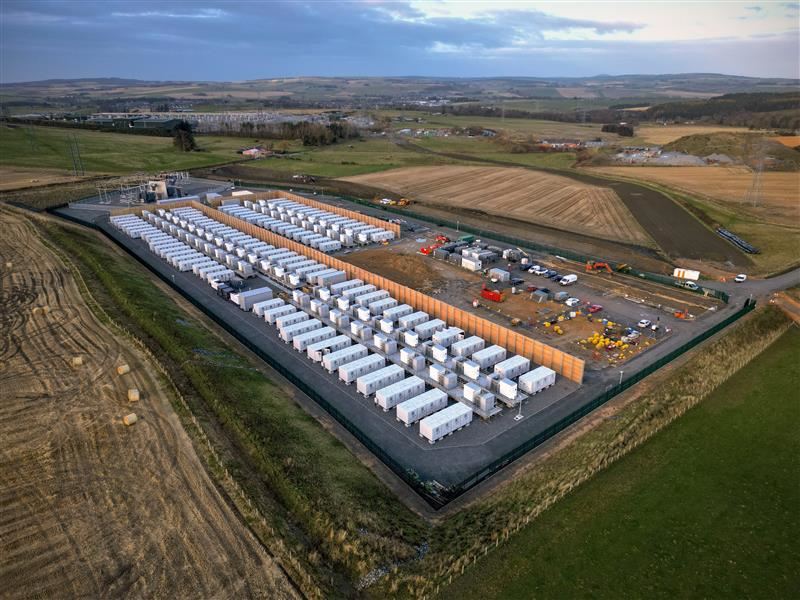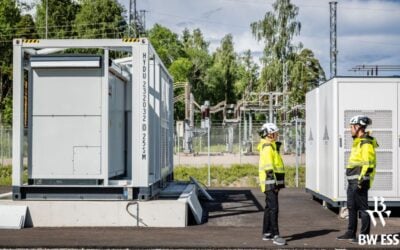
The UK now has nearly 9GWh of grid-scale BESS online, with more than double that figure under construction.
That’s according to the latest data from Solar Media Market Research’s ‘Battery Storage: UK Pipeline & Completed Assets Database’ report.
Enjoy 12 months of exclusive analysis
- Regular insight and analysis of the industry’s biggest developments
- In-depth interviews with the industry’s leading figures
- Annual digital subscription to the PV Tech Power journal
- Discounts on Solar Media’s portfolio of events, in-person and virtual
There is now 6,280MW/8,889MWh of grid-scale battery energy storage system (BESS) capacity online in the UK, the data shows. A total of 425MW/953MWh entered operations in the month since our piece at the start of February.
The main projects making up this figure are Penso Power’s 100MW/331MWh Bramley project, Eku Energy’s Loudwater and Basildon projects totalling 68MW/111MWh, and the first phase of Zenobē’s Blackhillock project, totalling 200MW/400MWh, the latter two covered by our sister site Solar Power Portal.
February also saw 395MW/767MWh of projects enter construction, meaning there is a total of 8,089MW/18,487MWh being built in the UK today. That is slightly down on last month’s figure, because of the projects that went into operation.
Meanwhile, 2,820MW/5,639MWh of projects were awarded planning consent—Energy-Storage.news listed a few of these in a roundup article on 13 February. The total figure for the month is similar to January’s, and means there is now a staggering 52,980MW/111,505MWh of projects with planning consent.
The milestone may be crucial for projects wanting to keep their place in the interconnection queue amidst a shake-up being implemented by regulator Ofgem and the National Energy System Operator (NESO).
February also saw planning applications submitted for 487MW/1,258MWh of projects, more than ten times the amount submitted in January.
The UK has led grid-scale BESS deployments in Europe since 2018 and remains an attractive market for investors despite plummeting average revenues in 2023 and 2024—these have started to pick up again, discussed by one of the largest owner-operators Gore Street in a recent interview.






